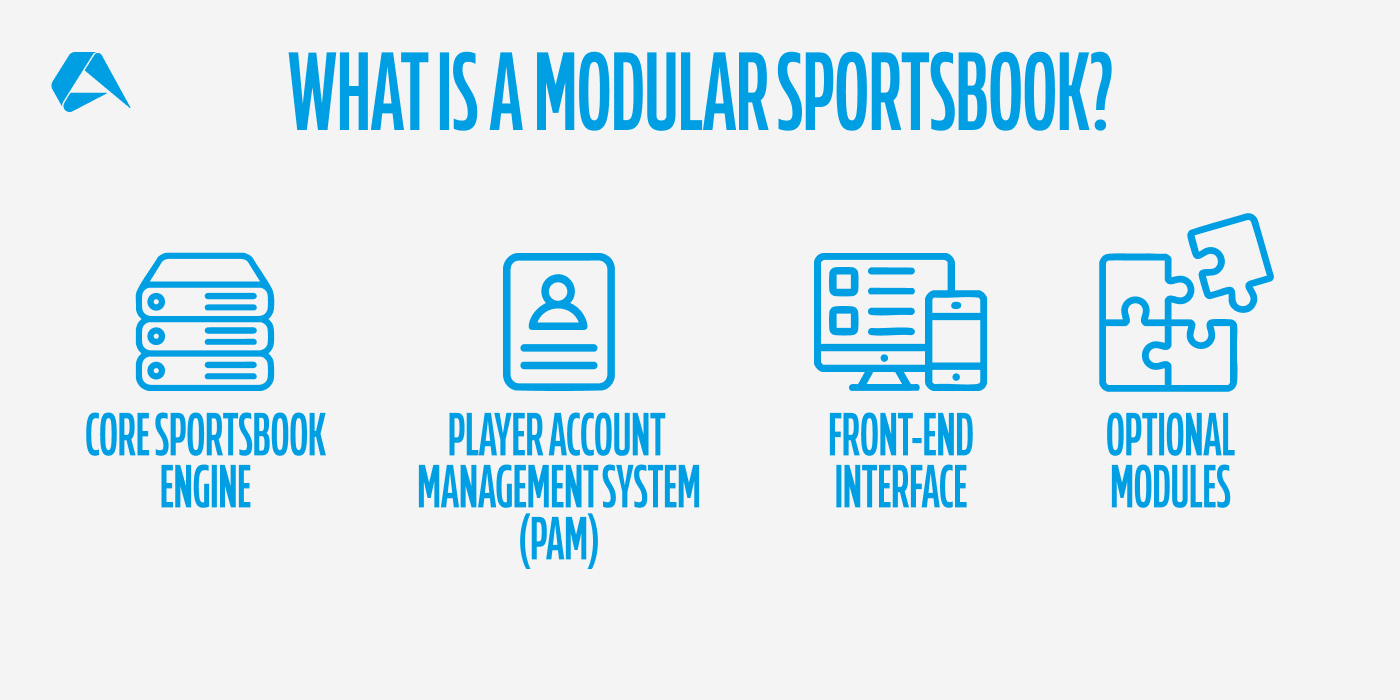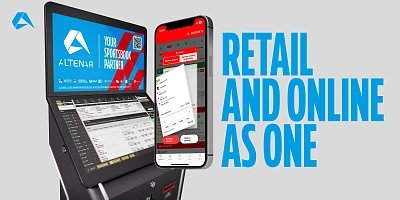Overview How Modular Sportsbook Platforms Give Operators a Competitive Edge
Rigid, ‘one-size-fits-all’ sportsbook platforms often struggle to keep up with evolving player expectations or rapid market demands. When these fixed structures stumble, fixing them can feel like "replacing the engine while the car is still hurtling down the motorway". Modular sportsbook platforms are a game-changer, designed more like a set of Lego blocks than concrete. This architecture grants operators the flexibility and agility to add, remove, or reconfigure components—from bonus engines to retail terminals—without tearing down the whole platform.
A modular system uses independent components, such as the core sportsbook engine and the Player Account Management (PAM) system, along with optional modules for features like Player Props, Free-to-Play Games, or Bet Boosts, all communicating via APIs. This design aligns technology directly with business strategy.
New operators benefit from rapid launch and cost efficiency. Established brands gain a competitive advantage by quickly deploying innovations, achieving market-specific tailoring, and implementing cross-channel integration, outpacing less agile rivals.
Discover how modularity can transform your sportsbook—read the full blog below for more details.
You may have seen this scenario before, or heard about it through industry chatter. A sportsbook launches with a brand new interface, a few clever promotions, or at minimum, a significant upgrade of some description, only to stumble a year later because its platform can’t keep up with player expectations or market demands.
That’s the danger of building on a rigid, ‘one-size-fits-all’ system. It works, but only until it doesn’t. And when it stops working, fixing it can feel like replacing the engine while the car is still hurtling down the motorway.
This is where modular sportsbook platforms can be a game-changer. Instead of binding you into a fixed structure, they give you the freedom to add, remove, or reconfigure the parts of your operation, from bonus engines to retail betting terminals, without having to tear down the whole platform.
For a new operator, that means launching quickly and only paying for what you need. For established brands, it means adapting more rapidly than the competition, whether that involves adding new features in one market or scaling retail operations in another. And the best part is that you can do all of this without starting over.
What is a Modular Sportsbook?

So let’s dissect the basic concept of sportsbook modularity. If a traditional sportsbook is like a building made with concrete, a modular sportsbook is more akin to a set of Lego blocks. You still get a strong, stable structure, but you can swap blocks out, add new ones, or rearrange the layout without having to knock the whole thing down.
And that’s a big deal. In practical terms, a modular platform is made up of independent components, each handling a specific function:
-
The core sportsbook engine (where odds, markets, and bet settlement operate).
-
The player account management system (PAM), (your player database, KYC, and wallet).
-
The front-end interface (what players see on desktop, mobile, or in retail).
-
Optional modules for things like bonus systems, bet builders, retail kiosks, casino integration, or free-to-play games.
Because these modules talk to each other through APIs, you can switch them on or off, upgrade them, or replace them with third-party solutions. For example, you may want to trial a Betting Insights feature for your VIP players, activate it in one market and leave it off elsewhere, or even add Player Props for an upcoming tournament. Well, with modular systems, you can, and turn it on instantly without affecting your other markets.
The beauty of modularity is that it aligns your technology with your strategy. Whether you’re launching a new platform or optimising an existing one, you get to decide what your sportsbook offers, where, and when it is deployed, all without costly and slow re-engineering.
The Business Case for Going Modular
Sports betting is moving fast. Regulations change, player preferences evolve, and competitors are introducing new ways to maintain engagement. In this environment, operators who can adapt in weeks have the upper hand.
Modular sportsbook platforms are built for exactly that. We’re talking about flexibility. Instead of being tied into a fixed set of features, you can move components around as your evolving strategy demands, without risking downtime across your entire platform.
For new operators, this means you can start by focusing on the essentials that get you to market quickly and then scale your offering as revenue grows. For established brands, on the other hand, it’s a way to stay ahead of player expectations, testing and deploying innovations without significant redevelopment costs.
The result is not just operational efficiency, but a competitive advantage. You’re able to respond to market demands and opportunities in real time, while your less agile competitors are still in planning mode. In sports betting, that speed can be the difference between a leading market position and chasing the pack.
Key Features That Drive Flexibility
The best way to understand modularity is to see the kind of integrations that can be included in your sportsbook. Here are just some of the interchangeable and customisable features that can be deployed on demand:
Player Props for Personalising the Betting Experience
Player props allow punters to bet on individual performances. Think in terms of the number of goals scored, assists made, or points earned during a competitive sporting event. They tap into fan interest in star players, offering a fresh micro angle beyond match results. Turn them on for specific sports or tournaments, or keep them active year-round for high-engagement markets.
Free-to-Play Games for Risk-Free Acquisition and Retention
Free-to-play games attract new players without requiring an initial deposit, making them a valuable tool in regulated or newly-launched markets. They also give existing players a reason to return regularly, keeping your brand at the forefront of their minds.
Betting Insights for Smarter Decisions and Better Engagement
Betting Insights provides real-time, data-driven stats directly within the betting interface, which can be anything from form guides to head-to-head results. They keep players engaged on your platform longer and increase bet confidence. You can roll them out for select sports or high-value customer segments.
Bet Boosts for an Instant Promotional Impact
Bet boosts allow you to offer enhanced odds on specific markets, events, or competitions. They’re quick to set up, flexible in scope, and effective for drawing attention to high-priority fixtures. You can roll them out quickly for headline sports or weave them into targeted campaigns, providing a fast and flexible way to draw attention to key events.
Want to see what else is possible? Modular systems offer far more than the features we’ve highlighted here. Explore Altenar’s Sportsbook Feature Guide library to discover a broader range of options you can activate.
The Real World Payoff of Flexible Tech
The features we’ve just looked at aren’t just impressive add-ons. When applied strategically, modular components can significantly improve operations, cut costs, and open doors to new markets without disrupting your core business.
Cross-Channel Integration
A modular platform can power your online, mobile, and retail channels from the same core engine. This means a consistent player experience across all channels, with shared data and tools, even if each channel has its own tailored interface and features. This means operators can add self-service betting terminals, for example, without altering the online sportsbook that’s already performing well.
Market-Specific Tailoring
Each market comes with its own mix of regulations and player habits. Modularity gives you the control to tailor every element in a way that fits local conditions. This provides the agility, for instance, to roll out Free-to-Play in one jurisdiction while prioritising Player Props in another, all without duplicating systems or disrupting the rest of your operation.
Cost Efficiency and Risk Reduction
With modularity, you only run the components you need, reducing licence and maintenance costs. You avoid overpaying for features that aren’t delivering ROI, and you can phase in new tools once you’re confident they’ll drive value.
Modular vs Fixed Structure Sportsbook
When it comes to sportsbook platform builds, the choice often comes down to modular flexibility versus fixed structure stability. Here’s a side-by-side comparison of the two.
| Feature | Modular Platform | Fixed Structure Platform |
|---|---|---|
| Flexibility | High. Add, remove, or adjust features easily. | Low. Changes require major updates. |
| Speed to Market | Rapid. Launch or adapt in weeks. | Slow. Months-long development cycles. |
| Customisation | Tailored per market or channel. | Mostly uniform across all markets. |
| Scalability | Expand incrementally as needed. | Expansion often requires a complete rebuild. |
| Risk Management | Test features in select markets first. | All changes affect the entire platform. |
| Cost Control | Pay for only the features you use. | Pay for the whole system, whether used or not. |
| Innovation Cycle | Continuous, low-friction updates. | Infrequent, high-cost overhauls. |
Achieve Modular Agility with Proven Technology
When modularity is backed by proven, enterprise-grade technology, it becomes more than just a flexible architecture. In today’s highly competitive sports betting arena, it serves as a powerful engine for growth. Altenar delivers exactly that, combining the agility of a modular platform with the stability, compliance, and market reach of a provider trusted in more than 30 regulated jurisdictions worldwide.
For operators with an existing setup, Altenar’s Sportsbook Module integrates with any PAM or front end, giving you instant access to premium data feeds, fast markets, Bet Builder, a comprehensive bonus engine, and more. Every component can be activated, adjusted, or paused according to your strategy and market needs.
For those starting from scratch, the turnkey sportsbook brings together every essential system, including a comprehensive sportsbook, PAM, casino integration, payments, mobile, and retail, all pre-connected and ready to deploy. It’s a full-stack solution that preserves the core flexibility to build, customise, and enhance as your operation develops, rather than being tied to static configurations.
Altenar also extends modularity into retail with cashier-led outlets and self-service betting terminals, all of which are managed from the same back end. This omnichannel flexibility enables you to expand into new verticals without introducing unnecessary complexity.
Altenar’s Solutions at a Glance
| Solution | Best For | Key Modular Benefits | Modularity Level |
|---|---|---|---|
| Sportsbook Module | Operators with existing PAM / front end | Pick and choose features, integrate into the current stack | Maximum, Fully customisable, plug into any setup |
| Turnkey Sportsbook | New operators wanting a full-stack setup | All systems are pre-connected, yet can still switch features | High, Extensive flexibility, but the core stack is fixed |
| Retail | Operators adding physical betting outlets | Connects to the same back end, configure per location | High, Modular per outlet, fully integrated with core |
| White Label | New sportsbook brands needing a low entry cost | Fully hosted, modular upgrades over time | Moderate, Modularity increases as you move toward ownership |
Whether you’re launching a new brand or optimising an existing sportsbook, Altenar’s blend of modular architecture and operational scale gives you the freedom to innovate without compromising on performance or compliance.
From Concept to Competitive Edge
Understanding modularity is one thing, but putting it into practice is what turns concepts into a competitive edge. The key is to start with your business goals and let them shape the technology.
Begin by mapping out your current and future requirements:
-
Which features are non-negotiable for launch?
-
Which can wait until later, or be tested in specific markets first?
-
What integrations will you need immediately, and which can be added later?
Next, evaluate providers not just on what they offer now, but also on how easily they can adapt to your needs. Ask how modules connect to external systems, how quickly features can be activated or deactivated, and how they manage compliance across multiple jurisdictions.
In addition to this, it is important to think beyond launch day. Modularity excels when your platform evolves in tandem with your strategy. The more control you have over what’s switched on and when, the more agile and competitive your operation will be.
See how modularity works in practice. Schedule your platform demonstration with Altenar now to see how our solutions give you complete control to expand, adapt, and innovate on your terms.













